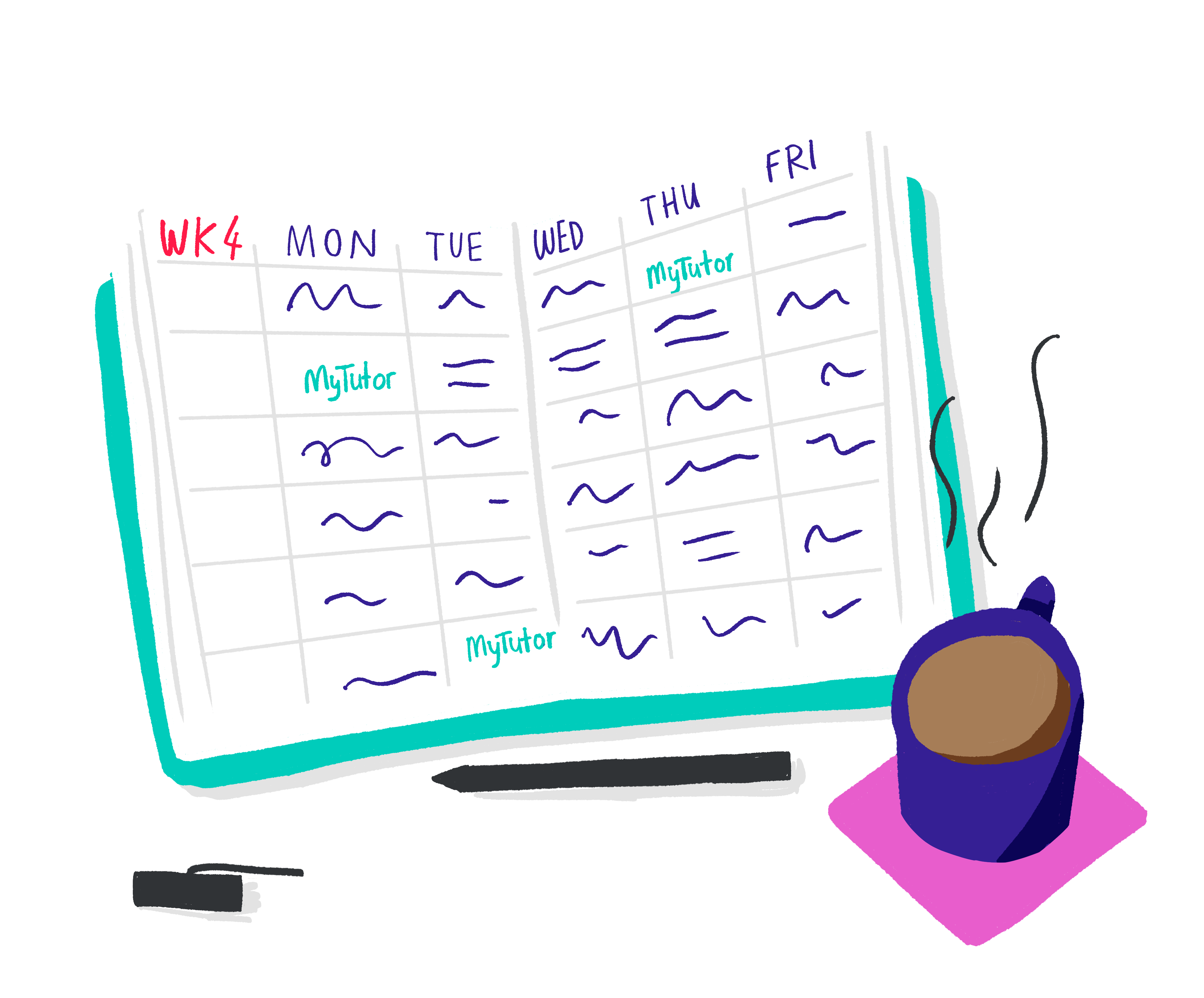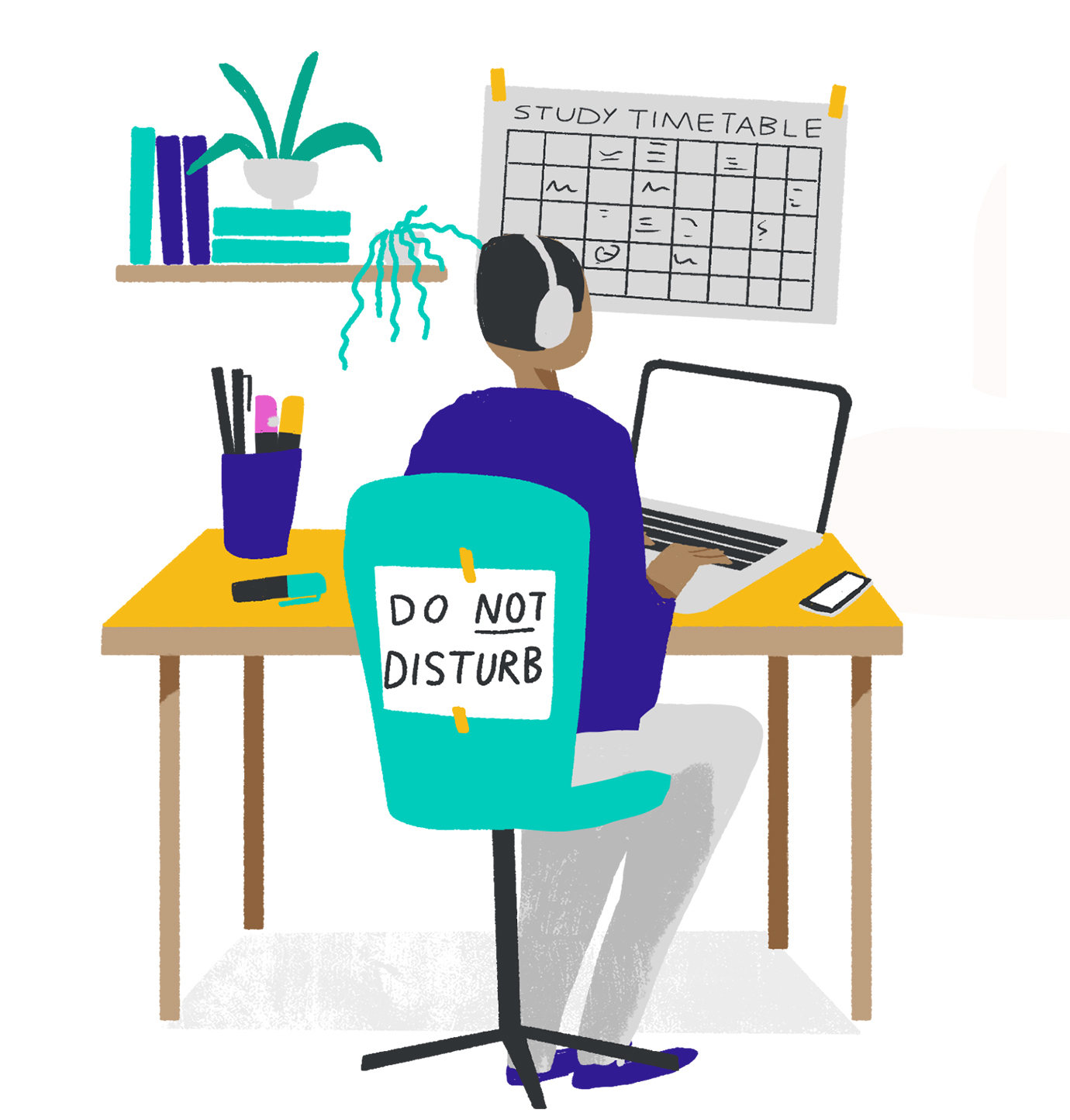New uniform, new stationary, new teachers – we all know what that means. Autumn term is a blank slate for teens and going up a year brings a load of fresh challenges. It’s exciting (who’s in their classes? What did so-and-so get up to over summer? Which teacher have they got for geography?) – but it’s also easy for them to get overwhelmed. As they settle in and get adjusted, here are four simple ways you can help at home.
1. Find a routine that works
2. Tidy desk, tidy mind
3. Help them find a positive frame of mind
4. Suggest that they set a goal for the year
1. Find a routine that works


Lock in a solid routine at the start of the year. As challenges swing in your teen’s way, having consistency when they get home will help will help them keep their head together.
After school: There’s no one set way for your teen to spend their time when they get home. But if it’s consistent day-to-day, then they’re more likely to feel calm and in control. This way, as homework deadlines and mock exams approach, they can reassure themselves that they’ll have time to do it.
Before bed: There are few things more stressful than chaos in the morning. Running around the house for a missing folder, book, shoe or art project – toast-in-hand – tends to set the day off on the wrong note. Avoid this by getting everything ready the night before. After dinner’s a good time for them to get their bag ready and list everything they’re doing the next day. That way, they’ll down their cornflakes a bit more calmly and head off to school in the right frame of mind.
💡A great tip here is to model these habits yourself. Explain to them how you’re balancing your work and home errands with everything else, and in time it’ll help them catch on.
2. Tidy desk, tidy mind
By GCSEs it’s ideal if a teen has their own desk space somewhere at home. Even the most disorganised teens benefit from keeping the place where they study under control. They should start by getting their books and notes organised by subject. That way, when they sit down to study they can grab what they need and get their head down straight away.


A teen’s biggest enemy when it comes to studying is also their favourite thing – their phone. Videos, games, memes and apps all battle for their attention from dawn till dusk. Learning to control their screen time now will help them loads at exam time, and for the rest of their lives too.
When they’re doing homework, their phone shouldn’t be on them or near them. If they’re working on a computer, they should turn off desktop notifications too, as Whatsapp, email and messages can all pop up on their screens when they’re trying to work (and look like they’re working!).
This is another nice way you can set an example – by doing the same. It’s true that kids are more likely to do what you do, not what you say. If you show how you don’t need to be glued to your phone the whole time (right?!) then it’s much easier for you to encourage the same behaviour from them.
3. Help them find a positive frame of mind


Sometimes a teen’s harshest critic is themselves. If they convince themselves early on that they’re not good enough, it becomes much harder for them to excel. Start the year with a big focus on reinforcing their confidence. Emphasise what makes them special, and that they can achieve anything if they put their mind to it. Whatever gets them down at school, having an encouraging environment at home will help them grow resilience.
If you think they could do with some more encouragement and help through their study struggles, our online tutors are perfectly placed to help. They studied the same courses as your teen in the last few years (and got top grades), so they’re up-to-date with the curriculum and explain things in a way teens find relatable. They double as confidence boosters and friendly mentors, giving their students the support they need to enjoy school and achieve their potential. You can have a search for a tutor or book a call with one of our Tutor Experts who’ll set you up with a free meeting.
4. Suggest that they set a goal for the year


As well as focusing on every deadline that comes their way, it’s important to focus on the bigger picture too. As Michelle Obama once said to a group of high school students, “Every single one of you has something to offer. Something that only you can bring to this world,” and she asked them to set one big goal for the year.
Ask your teen to have a think about what’s unique about them, and what mark they want to make on the world. Focussing on one big thing to achieve by this time next year can inspire them with the little things too. It could be a set of top grades, to run a sponsored race or even to help a certain number of people by volunteering. Finding their individuality and growing their self-esteem makes a more motivated teen who’s ready for anything. With a bit of confidence, organisation and inspiration they’ll make this school year their best one yet.
If you’d like to find more handy advice on helping your teen adjust to the new term, check out our Back to School Survival Guide.



